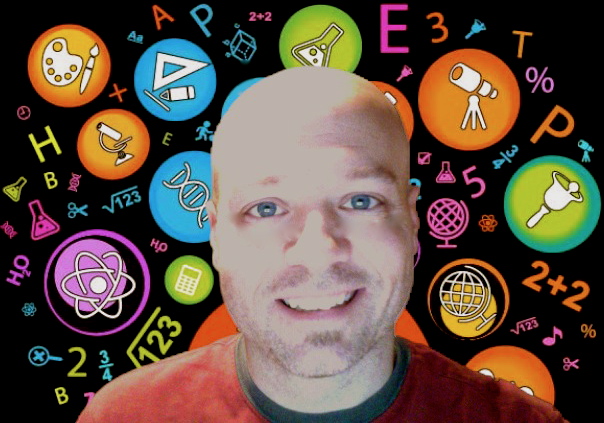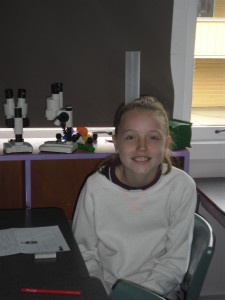‘Rockin’ it and learning and the same time’

“Theory in science gets tricky.” “Theory is boring.” “Who cares about the theory?” These are common complaints from children in our classrooms. However, theoretical knowledge is important. At times you need the students to have some theoretical knowledge before they perform experiments so they can apply it in different contexts. Theory can be taught in a didactic teacher-driven approach but my favourite instructional method for teaching theory is to use music.
Not many would disagree, listening to music is enjoyable. Educational research and best practices claim there are multiple intelligences and teachers should use multiple modalities of instruction to cater for difference and to aid learning. Typically, learners have a preferred style of retaining information – this may be visual, aural or kinaesthetic. But music is enjoyable. Research claims that music may aid in memory retention irrespective of individual learning styles. Music makes you feel relaxed. A relaxed learner is open to new ideas. Music makes you want to sing along and join in on the lyrics. Even if the lyrics are scientific theories. Music entraps learners without them knowing.
There are a variety of science songs available, but my personal favourite would have to be the collection by “Mr Parr”. According to his YouTube bio, Mr Parr is a 6th grade teacher who creates these songs to “help his students study”. Mr Parr’s collection of some 150 songs addresses scientific concepts from Archimedes Principle to atoms bonding. What makes them even better is he uses current music such as Swedish House Mafia’s “Don’t You Worry Child” as the musical background to his science songs. My students love them!
Now thanks to Google and email I have had contact with the infamous Mr Parr and I asked him to provide his views on integrating music with science. This is his reply:
“I teach in Franklin Lakes, New Jersey USA.
I am a musician as well as a teacher, so integrating music with science just seemed like a natural progression. One of the most important benefits of using music in my classroom is music’s ability to aid in the retention and recall of information. In my classroom, a musically rich environment generates student involvement, increases learning, promotes memorization of concepts, and encourages creativity, which provides for a positive learning experience. Simply stated, my songs promote learning, practice, and recall.
Many parents tell me that their children can’t wait to get home to listen to one of my new songs. They listen to the songs so often that the parents even forget the real lyrics to the songs and start singing my parody when the real songs come on the radio. My students seem to really appreciate the songs that I parody. Since I use songs that they are familiar with, learning new lyrics to a known melody makes recalling science terms and concepts easier. On many assessments I can often find students singing the lyrics to my songs to help them answer questions”.
Mr Parr does “The Big Bang Theory”
I use science songs to switch children, often using it as the signal for we are about to change curriculum areas to science. Whenever possible I introduce a new theoretical concept with some musical help. I also use it to consolidate understanding, typically using the same song numerous times. The children will regularly demand a favourite science song to be played when they are writing up experiments. Dancing and singing in their seats, but singing about science, and writing it up.
Despite my ideas on including music with science and any research that promotes the idea, the best evidence comes from the students themselves. Some thoughts from my current Grade 7 class:

“I believe music is a kick-start to learning, it gets my brain in gear and well ….. bring on the science! It helps motivate me and gets me keen for our lesson.” Taniesha
“It’s very interesting and inspiring. It makes you feel better and helps you link ideas. Music really helps me in science with my work.” Brittney
“Music helps you remember complex science words. It is a great help in kids’ minds. It’s a great idea I think.” Jayden
“I think having music with your science is awesome because some sounds in music can trigger certain parts of the brain to think more extra-ordinary making you think faster and more efficient.” Connor
“I think it’s a good idea to have music in science because it’s relaxing, so your pencil just glides around the paper writing words and it reminds you of the good in science.” Joe AKA the best student in class.
“I believe that blending science with music is a fabulous idea because everyone loves music and when they are singing to the lyrics, they could be rockin’ it and learning at the same time. Putting music into science makes science more fun and adds a bit of a twist to our education. I love science and I love music.” Eva
I just wish I could sing. Lucky for my students, Mr Parr really can!
Spencer D (2013-07-11 00:32:27). ‘Rockin’ it and learning and the same time’. Australian Science. Retrieved: Jul 01, 2025, from http://ozscience.com/education/rockin-it-and-learning-and-the-same-time/
 Follow
Follow
I’m inspired…I’m going to look for some ‘weather’ songs for my littlies. S
What an inspiration you are and how blessed are the children in your science groups? We need more innovative and excellent teachers like you, particularly those who can turn kids onto science. Well done!!